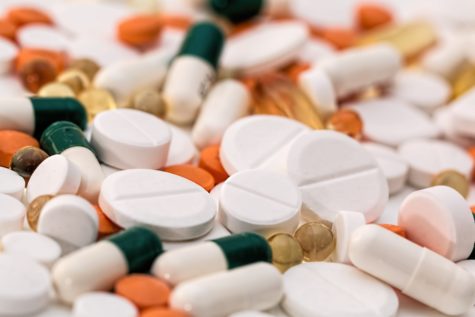ORLANDO, Fla. — You might think you’re doing yourself a favor by keeping around unused medications just in case you or a loved one falls ill in the future, but you may actually be doing more harm than good. A new survey finds an “alarming” number of parents are saving antibiotics and then wrongly giving them to family members and even other outside their homes.
Researchers warn that misusing antibiotics by taking them when they’re not prescribed or unnecessary, or taking them in the wrong timeframes and doses, only leads to more drug-resistant infections.
“This is dangerous not only for those given antibiotics that weren’t prescribed for them, but for entire populations of people who some antibiotics may no longer help when the bacteria they target become resistant to them,” says senior author Dr. Ruth Milaniak, Director of the Neonatal Neurodevelopment Follow-Up Program at the Cohen Children’s Medical Center of New York, in a release by the American Academy of Pediatrics.
For the study, Milaniak and her team sent an online questionnaire to a national sample of 496 parents recruited online. Nearly half the respondents (48.2 percent) said they keep antibiotics after their treatment times are over instead of disposing of them. Of that group, about three quarters (73 percent) said they gave them to their other children, unrelated children, and unrelated adults, sometimes months after they were originally prescribed. Many parents used the leftover antibiotics themselves.
The most common form of shared antibiotics was liquid. About 80 percent of medication-savers said they shared liquid antibiotics, 74 percent said they shared antibiotic drops, with creams not far behind at 70 percent. Tablets were less commonly shared — about 56 percent admitted to doing so.
Perhaps most shocking, 16 percent of respondents — about 1 in 6 — said they have given their child adult medications.
The survey also showed that the dosage of antibiotics given to others was usually the prescribed dosage for the original patient. If an adult’s medication was administered on a child, the parent would estimate the dosage based on the child’s age.
As for why so many parents went ahead with the decision to redistribute old medicine, among the most common responses was the desire to avoid paying for another trip to the doctor’s office. The authors urge health care providers to remind patients of the dangers of sharing medication or keeping them in their medicine cabinets after treatment.
“Although the discovery of antibiotics has revolutionized medicine, it is imperative that clinicians emphasize the importance of use and dispose of these medications properly to make sure they remain an effective tool against infectious diseases,” says Milaniak.
An abstract of the study was presented at the American Academy of Pediatrics (AAP) National Conference & Exhibition on Monday, Nov. 5, at the Orange County Convention Center in Orlando, Florida.
